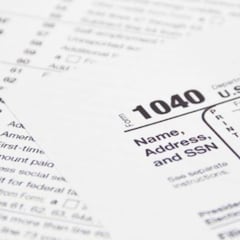In which US states do retirees pay the least taxes?
Bearing in mind that Social Security benefits are taxable, then in which US states do retirees pay less taxes?

Every month, the Social Security Administration (SSA) issues millions of payments to recipients of the program, who are mostly retired workers.
The amount to be received depends on the years worked, the salary received and the age at which the worker requested retirement. However, insurance beneficiaries must continue to pay taxes on monthly payments.
The percentage of taxes to be paid depends on the benefits received and the Internal Revenue Service (IRS) recommends calculating the combined income of the beneficiary. To do this, you must add together your adjusted gross income (AGI), nontaxable interest, and half of the Social Security payments collected over the course of a year. Depending on the result of the sum, the IRS may ask you to pay taxes on your benefits.
Limits on benefit taxation
If you file a federal tax return as an “individual” and your combined income is between $25,000 and $34,000, you may be taxed on up to 50% of the benefits. If combined income is more than $34,000, up to 85%.
If filing jointly and you and your spouse have a combined income between $32,000 and $44,000, could pay taxes on up to 50% of the benefits. If the combined income is greater than $44,000, up to 85%.
When to retire is a personal choice. We have tools to help you plan the best time to retire. Estimate your retirement benefits now: https://t.co/I8F40iKlgI #retirement pic.twitter.com/uMg8UBu4BD
— Social Security (@SocialSecurity) April 5, 2023
However, there are some states in the country that have their own exemptions to avoid paying such high taxes.
Which US states do retirees pay less in taxes?
According to a report by the Tax Foundation, in Alabama, Delaware, Iowa, and Rhode Island retirees pay the least in taxes.
Alabama
Thanks to Bill 162, taxpayers 65 years of age or older, will be able to exemptthe payment of state taxes on their first $6,000 dollars of retirement income.
Delaware
Those over 60 years of age may exclude $12,500 dollars of their pension from taxable income.
Iowa
Related stories
Taxpayers over 55 years of age may exclude the payment of taxes only on retirement income from:
- IRAs (authorized under section 408 of the Internal Revenue Code (IRC))
- SEP
- SIMPLE
- Keogh Plans
- Plabe
- Qualified pension plans that are included in section 1.401-1(b)(1)(i) of the Treasury Regulations, including IPERS
- Roth conversion income
- Qualified deferred compensation plans governed by the Employee Retirement Income Securities Act (ERISA), including 401(k), 403(b), and 457(b)
- Employee Stock Ownership Plan (ESOP) that fall under IRC section 4975(e)(7)
Rhode Island
Military pension income is tax-exempt, as well as retirement income on the first $20,000.


